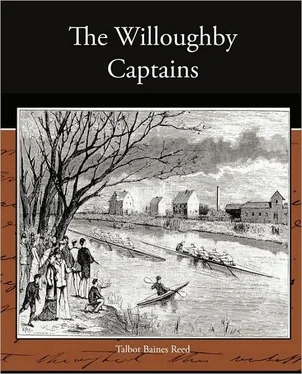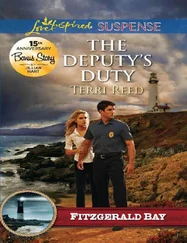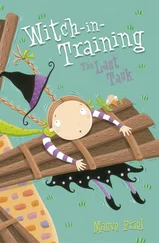“Let’s see,” says Wibberly, “there are five Parretts in the eleven, aren’t there.”
Ashley laughs.
“I don’t fancy any one thought of counting,” says he. “Perhaps we’d better not, or it may turn out as bad for us as in the Rockshire match.”
“After all,” says Tipper, “I’m just as glad those rows are over. We’re none the worse off now.”
“No, I suppose not,” says Game, a little doubtfully; “and Bloomfield and he are such friends. It’s just as well to keep in with the captain.”
“Not very difficult either,” says Ashley.
“He’s friendly enough, and doesn’t seem to have any grudge. He told me he hoped I’d be on the monitors’ list again next term.”
“Ah, I’m having a shot at that too,” says Game. “Ah, it is a follow-on, then. There go our fellows to field again.”
Just as the second innings of Templeton is half-over, a melancholy figure crosses the Big from the school and makes its way to the tent. It is young Wyndham, whose half-hour’s liberty has come round at last, and who now has come to witness the achievements of that second-eleven in which, alas! he may not play.
However, he does not waste his time in growling, but cheers vociferously every piece of good fielding, and his voice becomes an inspiriting feature of the innings. But you can see, by the way he is constantly looking at his watch, that his liberty is limited, and that soon, like Cinderella at midnight, he must vanish once more into obscurity. He knows to half a second how long it takes him to run from the tent to the schoolhouse, and at one minute and twelve seconds to six, whatever he is doing, he will bolt like mad to his quarters.
Before, however, his time is half-over the captain joins him.
“Well, old man,” says the latter, “I wish you were playing. It’s hard lines for you.”
“Not a bit — (Well thrown up, Gamble!) — not a bit hard lines,” says the boy. “Lucky for me I’m here at all to see the match.”
“Well, it’ll be all right next term,” says the captain. “I say, it would have done you good to see the cheer your brother got when he turned up.”
“Oh, I heard it,” said the boy. “Fairbairn lets me stick in his study — that window there, that looks right through the gap in the elms, so I can see most of what’s going on — (Now then, sir, pick it up there; fielded indeed!)”
The match is nearly over, and it looks as if Wyndham will be able to see the end of it. Nine wickets are down for forty-nine, and five runs must yet be scored to save Templeton from a single-innings defeat.
The last man begins ominously, for he makes two off his first ball. Willoughby presses round, breathless, to watch the next. It whizzes over the wicket, but does no harm. The next ball — one of Forbes’s shooters — strikes on the batsman’s pad.
“How’s that, umpire?” yells every one.
“Not out!” says old Wyndham.
The next ball comes — but before it has left the bowler’s hand young Wyndham has begun to run. Loud shouts and laughter follow his headlong progress.
“Well run, sir; put it on!” scream Parson and Telson.
“Stop thief!” howl Bosher and his friends.
“He’s gaining, there! Pull yourself together!” cry Cusack and Pilbury.
Heedless of these familiar cheers — for lately this has been a daily performance — Wyndham saves his honour at two seconds to six, the identical moment when Forbes’s last ball sends the Templeton bails flying high over long-stop’s head, and Willoughby is proclaimed winner of the match by one innings and three runs.
A jovial party assembles an hour later for “high tea” in the captain’s study.
Fairbairn, Coates, Porter, and Crossfield are there, and Bloomfield and Riddell, and the two Wyndhams, and assuredly a cheerier party never sat down in Willoughby.
“I never expected to find you a Welcher,” says old Wyndham to the captain.
“No? A fellow’s sure to find his level, you see, some day,” replied Riddell, laughing.
“Yes, but the thing is, Welch’s is coming up to his level,” says Bloomfield, “instead of his going down to Welch’s.”
“I should say,” says young Wyndham, blushing a little to hear his own voice before this imposing assembly, “all Willoughby’s coming up to his level!”
“The young ’un’s right, though he is a Limpet,” says Crossfield. “I had my doubts of old Riddell once, but I’ve more doubts about myself than him now.”
“You know, Wynd.,” says Porter, “we’re such a happy family, I shouldn’t wonder if I forget before long what house I belong to.”
“I’ll see you’re reminded of that, my boy, before the house football matches next term,” says Fairbairn, laughing.
“Yes,” says the old captain, “you’ll be a poor show if you don’t stick up for your own house.”
“Well, I don’t know,” says Porter, “we’ve had such a lot of sticking up for our own houses this term, that I’m rather sick of it.”
“Sticking up for ourselves, you mean,” says Bloomfield, “that’s where one or two I could name went wrong.”
“It seems to me,” says Coates, “that sticking up for your house, and sticking up for your school, and sticking up for yourself, are none of them bad things.”
“But,” says old Wyndham, “unless you put them in the right order they may do more harm than good.”
“And what do you say the right order is?” asks Crossfield.
“Why, of course, Willoughby first, your house next, and yourself last.”
“In other words,” says the captain, “if you stick up for Willoughby you can save yourself any trouble about the other two, for they are both included in the good of the old school. At least, that’s my notion!”
And with what better notion could we say good-bye to the Willoughby Captains?












